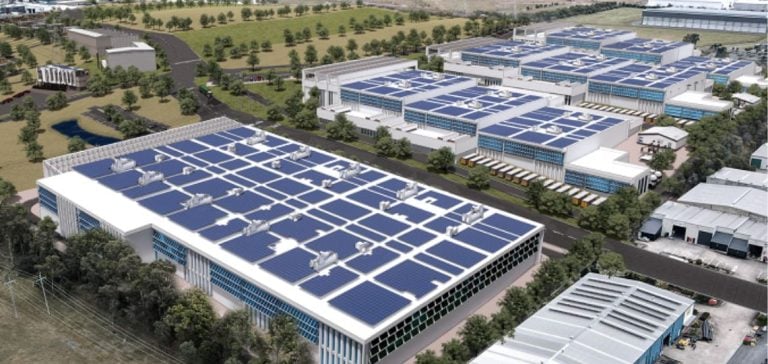The energy sector is undergoing a significant transformation, marked by a transition to more efficient energy storage solutions.
In this context, the Supernode project in Australia stands out for its scale and ambition.
The project, which aims to establish a large-scale energy storage infrastructure, is part of a drive to decarbonize and optimize renewable resources, particularly wind and solar power.
The selection of GE Vernova as the integration supplier for the Battery Energy Storage System (BESS) for stages 1 and 2 of this project testifies to the growing importance of storage technologies in the modern energy landscape.
An ambitious project for Australia
The Supernode project, developed by Quinbrook Infrastructure Partners, consists of several phases, with a planned total capacity of 750 MW.
The second phase, representing 250 MW/1,000 MWh of storage, is currently under development.
The project is positioned as one of the largest battery storage facilities in the Australian domestic electricity market.
By integrating energy storage systems, the Supernode aims to improve the reliability and resilience of the electricity grid, while facilitating the integration of intermittent renewable energies.
The first stage of the project, which has also been entrusted to GE Vernova, comprises a capacity of 250 MW/500 MWh and is already under construction.
This phased approach enables efficient resource management and optimized investment, while meeting the growing need for energy storage.
Storage capacity is essential for balancing supply and demand, especially as renewable energies play an increasingly prominent role.
GE Vernova’s strengths
GE Vernova, as an integration supplier, brings technical expertise and significant experience in the field of energy storage systems.
The company is responsible for the supply and commissioning of power conditioning systems, SCADA control systems, harmonic filters and capacitor banks.
This technical integration is crucial to ensure the smooth operation and efficiency of the storage system, enabling optimum energy management.
Ed Torres, Head of Solar & Storage Solutions at GE Vernova, emphasizes the importance of this collaboration: “We believe that GE Vernova’s product portfolio, engineering expertise and project delivery capabilities align perfectly with the needs of the Supernode project.” This statement highlights Quinbrook’s confidence in GE Vernova as a technology partner for this ambitious project.
Implications for the energy market
The Supernode project is more than just an energy storage facility; it also represents a significant step towards a more sustainable energy infrastructure.
By facilitating the storage of energy generated by renewable sources, the project contributes to the reduction of carbon emissions and the transition to a more resilient energy system.
BESS installations like this one play a key role in managing fluctuations in renewable energy production, enabling more efficient use of available resources.
The growing importance of energy storage systems is also underlined by market trends.
Investment in storage technologies continues to rise, reflecting growing awareness of the economic and environmental benefits associated with these solutions.
Industry players must therefore adapt to this evolution, by integrating storage technologies into their operational strategies.
Future prospects
As the Supernode project progresses, it is likely to serve as a model for other similar initiatives around the world.
The ability to effectively integrate energy storage into existing power grids will be key to achieving decarbonization targets.
The lessons learned from this project could influence future energy policies and investments in the renewable energy sector.
All in all, the Supernode project, with the involvement of GE Vernova, illustrates significant advances in the field of energy storage.
It highlights the importance of technological innovation and collaboration between industry players in meeting today’s energy challenges.
Future developments in this field will be crucial in shaping a sustainable and resilient energy future.





















